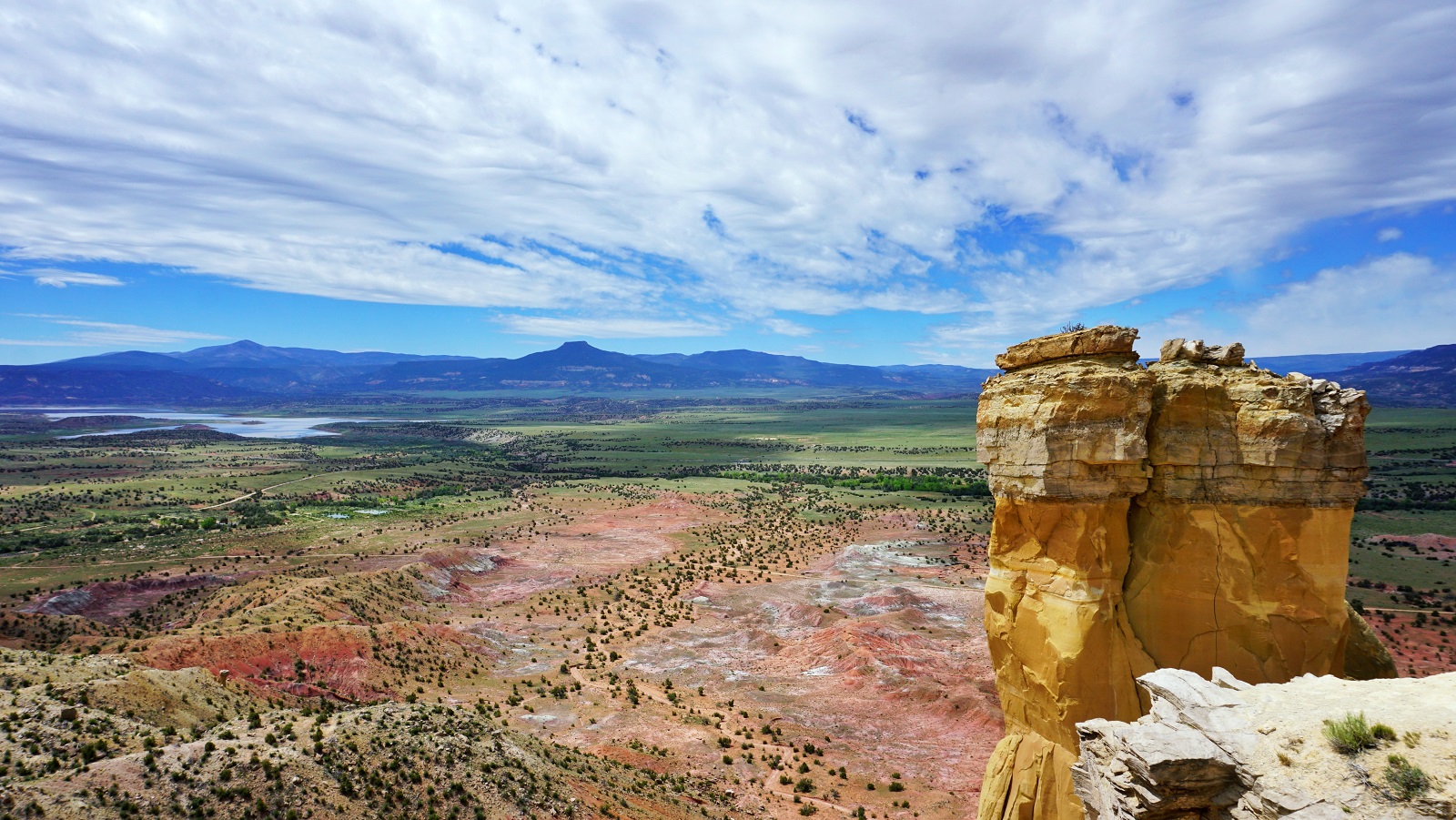Commentary on Exodus 16:2-15
With the Song of the Sea still ringing in our ears, chapter 15 of the Book of Exodus ends with the first episode in a series of narratives where the people complain against Moses and God, what has come to be called “the murmuring tradition”. Chapter 16 features one of its most famous episodes. The people, now free but hungry, remember fondly what it was like to be well-fed, even if they were enslaved. They reminisce about “when we would sit by the fleshpots and eat our fill of bread.”1 It would have been better to die there! Who knows if this memory is accurate? It seems unlikely, but it doesn’t matter. What matters is that the contrast of their memory with their present reality uncovers doubt in their leaders and in God. Hunger and other kinds of physical discomfort certainly seem to be clouding their judgment but I think we still expect God’s wrath. Yet it does not come. God responds by feeding them (“I am making it rain bread from the heavens”). The response comes so quickly that Moses can’t even get an intercession in edgewise! God legitimates the complaint, caring for the people’s bodies in the form of meat that night, and bread each morning. This bread in particular, called “manna”, becomes the paradigmatic food of faith, proof that God sustains us daily.
An irritated God?
Commentaries routinely call this complaint “needless”, or refer to God’s anger or judgment about the people’s ungratefulness. While these things are clearly the case with other iterations of this story (see Numbers 11:4-35; Psalm 78:9-31), here we see God respond quickly and abundantly, handling the complaint with compassion. It is Moses who deflects and seems irritated. In fact, God responds before Moses can even bring the complaint.2 Perhaps we are reading this story by analogy with the other manna texts.3 It is more likely that we are quick to assume the people are always wrong and that it is God’s lot to show undeserved compassion. There is certainly value in the theological assertion that even when human beings fail, God’s graciousness prevails. But we also do well to let the text speak rather than presuming we know what it will say.
A God who feeds:
God’s identity as one who feeds is “lively and vibrant” in the biblical tradition, “formative in the religious imagination”.4 Fundamental to who God is, feeding is part of the work for which God is rightly to be praised (You bring forth food from the earth / …these all look to you to give them their food in due season, Psalm 104:14, 28). So vast is God’s power to provide food in the biblical literature that it almost disappears from the reader’s view—but it undergirds everything. It is the subject of the first words God speaks to human beings in both Genesis creation accounts (1:28-29; 2:16-17). And in the social reform laws governing a jubilee year (Leviticus 25:18-22), God’s power to bring food from the earth is so complete that, in order for Israel to observe this law, God simply makes the earth bring forth more food to help them prepare.
“What is it?”
God had told the people that it would rain bread from heaven, lekhem min-ha-shamayim—as opposed to the norm of God bringing bread from the earth, lekhem min-ha-aretz (see above, Psalm 104:14). This curious promise is fulfilled via a kind of flaky substance that covers the ground in the morning. When the dew evaporated, the Israelites said to one another, man hu? (“what is it?”). It is described as having various colors and tastes (see also Exodus 16:31, Numbers 11:7-8). Clearly, calling this mysterious, miraculous food something that sounds like what-is-it is a kind of folk etymology. The description also involves a Hebrew word that appears only here (mekhuspas) but may be related to peeling, crackling, or being scaly—not a particularly appetizing way to describe food to our ears—but the primary association appears to be with frost, something white and delicate that appears only under certain conditions and melts in the sun. Attempts to locate a natural phenomenon in the region that served as a reference point for this tradition have been around since antiquity, but the point is clear that this was an act of miraculous provision. Thus, Moses and Aaron are commanded to keep a portion of manna in a jar as proof for future generations of God’s ability to provide (14:32-36). God is replacing their (false?) memories of luxurious food in the exploitative economy of Egypt with new (real!) memories of sufficient, equitable food in the wilderness.5
Food and time:
Did you notice that our pericope begins with verse 2? Let’s back up. Verse 1 reads:
The whole congregation of the Israelites set out from Elim; and Israel came to the wilderness of Sin, which is between Elim and Sinai, on the fifteenth day of the second month after they had departed from the land of Egypt.
I know that many of us skim right past these sorts of verses as we read the Bible. But take a beat. Chapter 12 reports the exodus event began on the fourteenth day of the first month (12:18), which means that the people began to complain exactly one month later. It seems the provisions they took from the Egyptians (Exodus 12:35-39) have run out. When our lectionary omits this verse, the story begins with, “Then the entire congregation of the Israelites complained …” I have a hunch that entering the narrative at that point means we are more likely to read from a place of judgment rather than one of empathy.
Moreover, this text is deeply concerned with time (daily rhythms, 14:4; specific days, 14:5; times of the day, 14:6, 8, 12, 13). Marking time matters in this story, especially as it anticipates the observance of a day of rest (20:8-11), where God makes special provision so that the people need not worry about food. First daily and eventually weekly, they are reminded that their food does not come from their own toil, but from God. In his commentary on Exodus, J. Gerald Janzen argues that the people leave Egypt with a “deeply flawed relationship between food and time.”6 This story suggests that the meaning of “daily quota” (see also Exodus 5:13, 19; 16:4) has changed—now it signals how you are provided for. God is a different kind of sovereign than Pharaoh—one working to heal your pressured and productivity-focused relationship with time.
Sabbath rest in general presents a challenge for many of us, but let’s think about it particularly with respect to food. Our food is commodified, and industrialized in countless ways; grown and packaged and shipped to us in ways that are unhealthy, unsustainable, and which we would find immoral on any smaller scale—all of this to support a pace of life that is far from life-giving. Most of the ways we can opt out of this system are market-based. We can purchase what matters to us: health, sustainability, convenience—though probably not all at once. We would be hard-pressed to find non-monetized ways to align our food choices with our values, to disentangle ourselves from all the ways our food systems are harming us, other creatures, and the planet.7 Most of us are aware that these unwholesome truths are wrapped up right there between the plastic and styrofoam, but the budget is tight, we’re needed for a thousand other tasks, and someone has to get dinner on the table. The expectation of productivity is indeed oppressive. The pace and complexity of modern life seems to encourage us to be unreflective in our lives, including about our food.
Given how these realities rub up against a conviction that food is a gift from God, how then shall we eat? One of my favorite thinkers on this question is the philosopher and theologian Norman Wirzba, who proposes reframing eating so we can see that food is God’s love made nutritious and delicious.8 No longer fuel or commodity, food is how we share in God’s blessing and embrace the reality that there is no release from our shared life with the rest of creation. It’s no mistake that God’s attempt to heal Israel’s relationship with time and productivity begins with care for the body. This strange bite reminds the people that the God who provides food is also the Lord of time. Imagine the possibilities of living out of this economy, this freedom, this reality. Because even when you look around and see barrenness, even when your sense of worth is distorted, God is already working a gracious and abundant response that can heal your sense of who you are and where you belong.
Notes:
- Exodus 16:3, NRSV.
- The expected pattern can be seen in Exodus 15:25.
- For a contrast with Numbers 11 and Psalm 78, see Deuteronomy 8:1-10.
- L. Juliana M. Claassens, A God Who Provides: Biblical Images of Divine Nourishment (Nashville: Abingdon, 2004), 23.
- Fretheim, 187.
- J. Gerald Janzen, Exodus (Louisville: Westminster John Knox, 1997), 117.
- Wirzba, 59.
- Norman Wirzba, Food and Faith: A Theology of Eating, 2nd ed. (Cambridge: Cambridge University Press, 2019), 42.



September 24, 2023